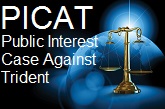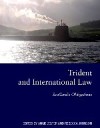By Emily Schwartz Greco and John Feffer
We only have a few decades to deal with climate change. If humanity
fails to cut back dramatically on carbon emissions by 2050, according to
an alarming new UN report, our planet may warm past the point of our
ability to fix the problem.
Given global dependence on oil, gas, and coal, weaning every economy
from fossil fuels to save Mother Earth won’t come easy or cheap.
Fortunately, there’s a big pot of money available to avert a climate
catastrophe.
Accessing that money, however, requires cutting back on a different set
of pollutants — the huge cache of weapons the world continues to produce.
Europe has trimmed its military spending and the Pentagon budget is
leveling off. Yet other regions are burning through more cash to wage or
gear up for war than they used to.
Military outlays are rising the most in Africa and the Middle East. And
Asia surpassed Europe last year for the first time in terms of overall
military spending.
The United States still faces no competition for its distinction as the
world’s military spending champion. The Pentagon’s $640 billion tab
amounted to more than a third of the $1.75 trillion in global military
spending the Stockholm International Peace Research Institute itemized
for 2013.
What does worldwide military excess have to do with today’s reliance on
fossil fuels? Instead of investing in ways to slow global warming and
adapt to a changing climate, too many nations are pouring money into
weapons in an ongoing fight over the dwindling resources we haven’t
quite used up yet.
There’s still time to pivot in a new direction. One big step
governments, industries, and investors must take is to quadruple the
money they’re pumping into sustainable alternatives to oil, gas, and coal.
Those investments now total about $250 billion a year. While that may
sound like a lot of solar panels and wind turbines, the United Nations
says it’s not enough. It will take a “clean trillion” every year between
now and 2050 keep the world livable, the International Energy Agency
estimates.
Yes, the private sector needs to play a role in building a fossil-free
global economy. So do governments, which possess the power to tax
carbon-intensive energy. That’s certainly one good way to generate
revenue for meeting the climate challenge while creating incentives to
increase efficiency.
But world leaders can’t really fight climate change unless they slash
military spending.
As climate writer and activist Bill McKibben says, do the math. Just
shrinking the global military-industrial complex by 25 percent would
free up $437.5 billion a year. Given the security challenges climate
change poses, this makes perfect sense.
The head of the U.S. fleet in the Pacific has identified climate change
as the biggest threat facing the region. The Pentagon is devoting
considerable resources to studying rising temperatures as “threat
multipliers” bound to stoke competition for resources, make humanitarian
disasters more common, and increase political instability.
Battleships and fighter jets can’t defeat the threat of a melting ice
cap or rising sea levels. It will take mountains of money to reduce our
carbon emissions while maintaining a modern economy.
It may help to think about climate change as “getting embroiled in a war
that lasts 100 years” without any obvious exit strategies, as retired
Brigadier General Chris King puts it.
“You can see in military history, when they don’t have fixed durations,
that’s when you’re most likely to not win,” warns King, the dean of
academics at the U.S. Army Command and General Staff College in Fort
Leavenworth, Kansas.
Unless every nation ramps down military spending, we’ll all lose the
next big war over the fate of the Earth without even firing a shot.
- John Feffer is co-director of Foreign Policy In Focus at the Institute
for Policy Studies. Emily Schwartz Greco is the managing editor of
OtherWords, the Institute of Policy Studies’ national non-profit
editorial service.
Global Network Against Weapons & Nuclear Power in Space
PO Box 652
Brunswick, ME 04011
(207) 443-9502
[email protected]
www.space4peace.org
http://space4peace.blogspot.com/












 Nuclear weapons crime in the UK has been reported to Thames Valley Police.
Nuclear weapons crime in the UK has been reported to Thames Valley Police.










